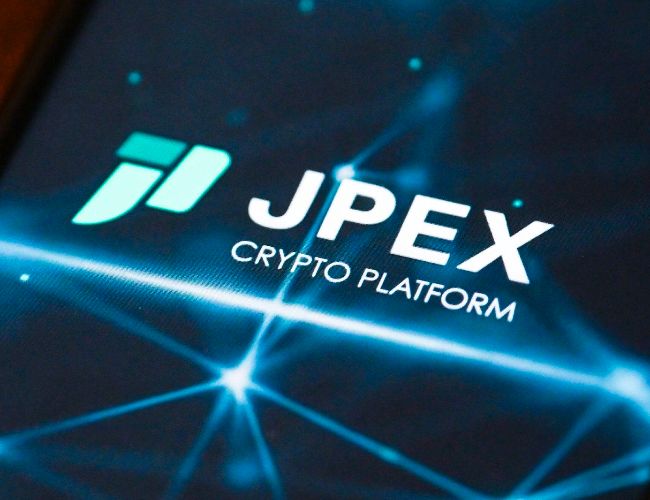In response to mounting concerns surrounding the JPEX crypto exchange and amid allegations of false or misleading statements, Hong Kong authorities have taken a significant step towards enhancing transparency in the cryptocurrency industry. The Securities and Futures Commission (SFC) has announced plans to publicly disclose various lists related to virtual asset trading platforms (VATPs) and their license applications. This decision aims to address public demand for clarity and accountability, ushering in a new era of oversight, according to local reports.
The Comprehensive Lists Unveiled
To address the pressing need for greater transparency, the SFC will provide various lists, including:
1. Licensed VATPs: This list will showcase virtual asset trading platforms that have successfully obtained licenses from the regulatory authority. It serves as a testament to compliance and legitimacy within the crypto market.
2. VATPs Nearing Closure: Platforms facing impending closure will be listed, alerting users to potential risks associated with these exchanges. This transparency empowers users to make informed decisions.
3. Future Licensees by June 1, 2024: This list will reveal platforms in the pipeline for acquiring licenses, offering a glimpse into the evolving crypto landscape in Hong Kong.
4. Applicants in the Queue: A list of VATP applicants will be published to bolster awareness. This will enable the public to scrutinize whether a particular platform has made false claims regarding license applications.
Cracking Down on Misleading Practices
The catalyst for this groundbreaking move was the JPEX scandal, which unfolded following allegations of deceptive practices by the exchange. The SFC had previously warned influencers and JPEX about their misleading actions. However, the situation escalated when Hong Kong authorities launched a police operation codenamed "tieguan" or "iron gate," involving searches at 20 locations connected to JPEX and detention at least 11 individuals. The government also called on local telecommunications providers to restrict access to the JPEX online platform.
In response to the crackdown, JPEX characterized the police action as "unfair treatment" and urged its Hong Kong customers to temporarily cease deposits into the platform. Notably, Donald Day, COO of Hong Kong-based crypto platform VDX, welcomed the enforcement actions, highlighting the importance of holding influencers and key opinion leaders (KOLs) accountable for promoting JPEX.
The Masterminds Remain at Large
Despite the arrests of 11 individuals connected to the JPEX case, the alleged masterminds behind the exchange's activities remain elusive. This has prompted Hong Kong authorities to seek assistance from Interpol in locating and apprehending those responsible for what is being labeled as the city's most significant financial fraud.
The JPEX scandal hit the crypto industry reputation and has left a trail of victims, with over 2,265 complaints filed and estimated losses reaching $178 million (1.4 billion Hong Kong dollars). Users have reported difficulties in withdrawing Bitcoin from the platform, exacerbated by a sudden increase in withdrawal fees to 999 Tether.
Among those brought in for questioning is Joseph Lam Chok, a prominent figure in the cryptocurrency industry who distanced himself from the exchange. Additionally, YouTubers Chan Wing-yee and Chu Ka-fai, boasting a combined audience of over 200,000, were detained alongside three JPEX Technical Support Company employees. The investigation has cast a wide net, even roping in the director of a nearby restaurant and three A-list celebrities who had previously endorsed JPEX.
Despite these arrests, the authorities emphasize that the true architects of the scheme remain at large. The ongoing investigation suggests that more arrests may be forthcoming as Hong Kong police intensify efforts to bring those responsible to justice. To aid in their pursuit, local authorities have enlisted the help of Interpol and foreign enforcement agencies while working with telecommunications providers to block access to JPEX's website.
Revelations of Regulatory Non-Compliance
The SFC refuted claims of "unfair treatment", declaring on September 20 that JPEX had been operating virtual asset trading without proper authorization. The exchange, which had stated it was based in Dubai and authorized for cryptocurrency trading in the United States, Canada, and Australia, launched in 2020 with aspirations of becoming one of the top five cryptocurrency exchanges globally.
As the investigation into JPEX unfolds, Hong Kong's commitment to transparency and accountability in the cryptocurrency industry becomes increasingly evident. By disclosing the list of crypto license applicants, the authorities aim to empower the public to scrutinize platforms and ensure greater trust and integrity in the digital asset ecosystem.
 cryptonews.net
cryptonews.net
